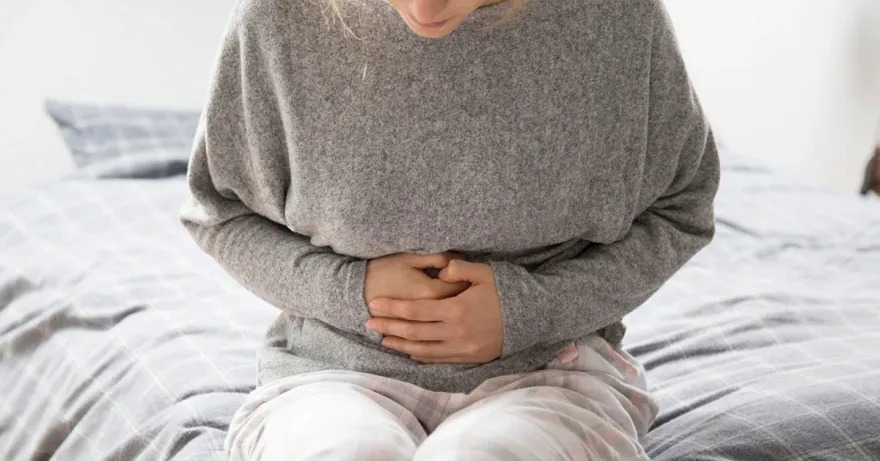Suffer from constipation especially when you are close to your due date? Due to hormonal changes, you are more prone to constipation. As the growing baby presses down on your intestines, it is more difficult and slower for the stool to pass. That’s why you may start feeling bloated, constipated and even have hemorrhoids.
If you have less than 3 bowel movements in a week, you may have constipation. Even if you have bowel movements every day but you may have constipation too if you have the below condition:
- Your stools are dry and hard.
- You stay in toilet for a long time as it is difficult for your stools to pass through.
- You may not fully empty your bowels.
Causes of pregnancy constipation
- Hormonal change
When your progesterone level rises, you may start to have constipation at the second or third month during pregnancy. Your muscles become lazy and slow down to help move food along when progesterone makes your muscles in your bowel relax. - Enlarged uterus
Constipation becomes worse when your uterus enlarges to provide a place for a growing baby and occupy the space for bowel movement. As a result, stools are difficult to push out. - Prenatal vitamin
Make sure that you do not take too much iron supplement. Iron may contribute to hard black stools and constipation. Talk with your doctor if you are not sure whether your iron supplement may cause constipation.
Treatments & Remedies of pregnancy constipation
- Take more high-fiber foods
High-fiber foods such as whole-grain bread, beans, fruits, vegetables help eliminate waste and keep food moving through the digestive tract. If you prefer fiber supplements, you may talk with your doctor first. - Drink more water
Water actually plays an important role for pregnant moms. Make sure you drink up at least 2000ml a day of water, tea, soup or other fruit juices. It helps soften your stools and let them pass through easily. If you feel that you want to go to the toilet, please go as soon as possible and avoid “holding” it. - Stay active
Exercise regularly can help with your digestion. You can start with a simple brick walk or some moderate exercise to help stimulate your intestines and regular bowel movements. Also, you can try some Kegel exercises to improve circulation at your rectum.
You might feel round ligament pressure when engaging in physical activity in the third trimester, a support band can be especially helpful for active mums-to-be. It sits securely around your hips and lower back to cradle your growing bump. - Avoid laxatives
Laxative pills are not recommended to treat constipation as they may cause dehydration and uterine contraction. It is encouraged to talk with your doctor before taking any laxatives or stool softeners.
About the Hemorrhoids
More than 50% of pregnant women may suffer from hemorrhoids. Hemorrhoids are painful, itchy and cause bleeding during and after bowel movement. If you seek the doctor, you may be provided topical cream to treat the hemorrhoids. Don’t worry, your hemorrhoids may disappear after delivery without treatments. If you have hemorrhoids at your first pregnancy, you are more likely to have it at your following pregnancies.
What is the cause of Hemorrhoids?
Hemorrhoids are caused by swollen and inflamed veins in the anus and lower rectum. These veins can become irritated and swollen due to increased pressure in the area, such as straining during bowel movements, sitting for long periods of time, or chronic constipation or diarrhea.
Other factors that can contribute to the development of hemorrhoids include pregnancy, obesity, aging, a low-fiber diet, and a sedentary lifestyle. Certain medical conditions, such as liver disease or inflammatory bowel disease, can also increase the risk of hemorrhoids.
In some cases, hemorrhoids may be hereditary, meaning they are passed down through families. However, a family history of hemorrhoids does not necessarily mean that someone will develop them.
In summary, the causes of hemorrhoids include increased pressure in the anal and rectal area, lifestyle factors (Low fiber diet), lifting heavy object, medical conditions, constipation, and genetics.
The treatment for Hemorrhoids?
The treatment for hemorrhoids depends on the severity of the condition. In mild cases, hemorrhoids can often be treated with self-care measures. However, more severe cases may require medical intervention.
Here are some treatments for hemorrhoids:
1. Self-care measures: Mild hemorrhoids can often be treated with self-care measures, such as increasing fiber intake, drinking plenty of fluids, taking warm baths, and avoiding sitting or standing for long periods of time.
2. Topical treatments: Over-the-counter creams and ointments, such as hydrocortisone, can help relieve itching and inflammation. Witch hazel pads can also be used to soothe the affected area.
3. Pain relief: Pain relievers, such as acetaminophen or ibuprofen, can help relieve pain associated with hemorrhoids.
4. Procedures: If self-care measures and topical treatments do not provide relief, medical procedures may be necessary. Some procedures that can be performed to treat hemorrhoids include rubber band ligation, sclerotherapy, infrared coagulation, and hemorrhoidectomy.
5. Prevention: To prevent hemorrhoids from developing or recurring, it is important to maintain good bowel habits, such as avoiding straining during bowel movements, increasing fiber intake, and staying hydrated. Regular exercise and avoiding prolonged sitting or standing can also help prevent hemorrhoids.
It is important to consult a healthcare professional if you are experiencing severe or recurring hemorrhoids, as they can provide personalized treatment recommendations based on your individual needs.
How to Prevent Hemorrhoids?
Here are some tips to prevent hemorrhoids:
- Eat a high-fiber diet: Consuming foods that are high in fiber, such as fruits, vegetables, whole grains, and beans, can help prevent constipation and straining during bowel movements, which are major risk factors for hemorrhoids.
- Stay hydrated: Drinking plenty of fluids, especially water, can help keep stools soft and easy to pass, reducing the risk of hemorrhoids.
- Exercise regularly: Regular physical activity can help stimulate bowel movements and reduce the risk of hemorrhoids. Aim for at least 30 minutes of moderate exercises, such as brisk walking or cycling, most days of the week.
- Avoid sitting or standing for long periods: Prolonged sitting or standing can increase pressure on the veins in the lower rectum, leading to hemorrhoids. Take breaks and move around every hour or so if you have a sedentary job or lifestyle.
- Don’t delay bowel movements: Delaying bowel movements can lead to constipation and straining during bowel movements, which can increase the risk of hemorrhoids.
- Practice good hygiene: Keeping the anal area clean and dry can help prevent irritation and infection, which can worsen hemorrhoids. After bowel movements, gently clean the area with moistened wipes or a bidet, and avoid using dry toilet paper.
- Avoid heavy lifting: Heavy lifting can increase pressure on the lower rectum and worsen hemorrhoids. If you must lift heavy objects, remember to use proper lifting techniques, such as bending your knees and keeping your back straight.
By following these tips, you can help reduce your risk of developing hemorrhoids or prevent them from recurring. If you are experiencing hemorrhoid symptoms, it is important to consult a healthcare professional for personalized advice and treatment recommendations.


Leave a Reply